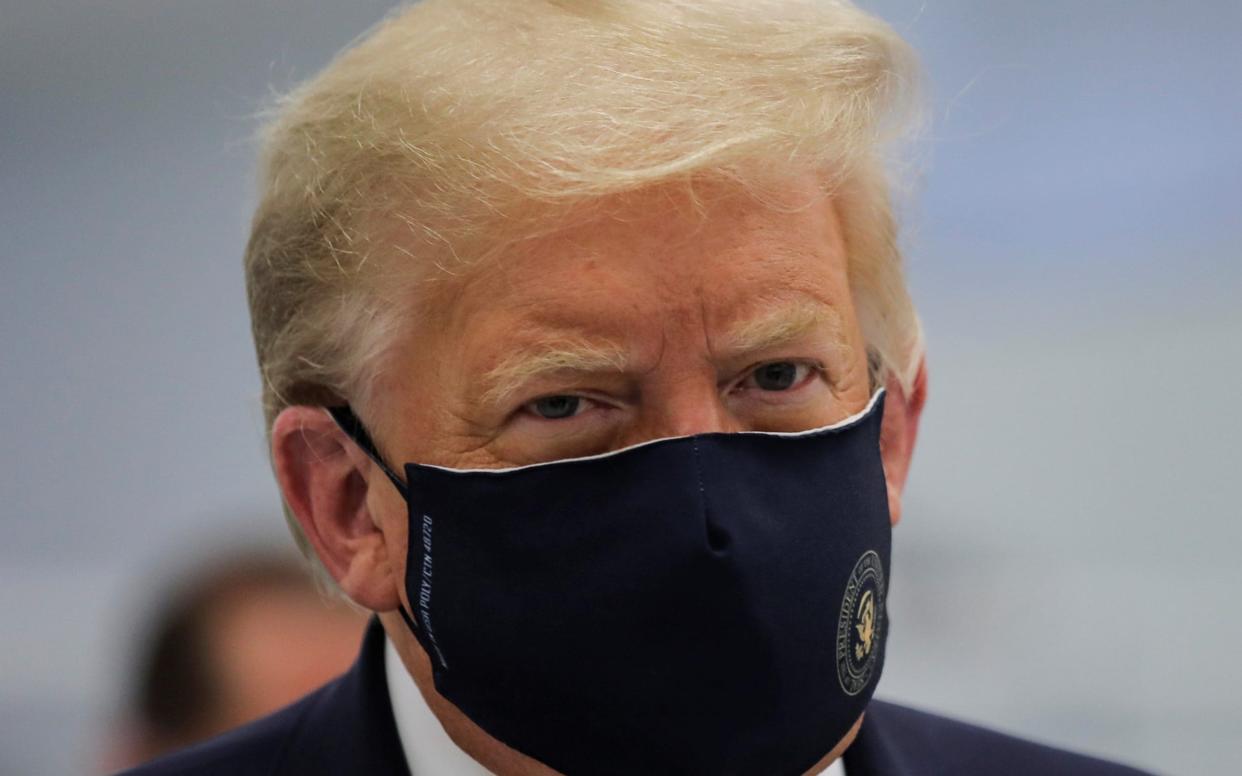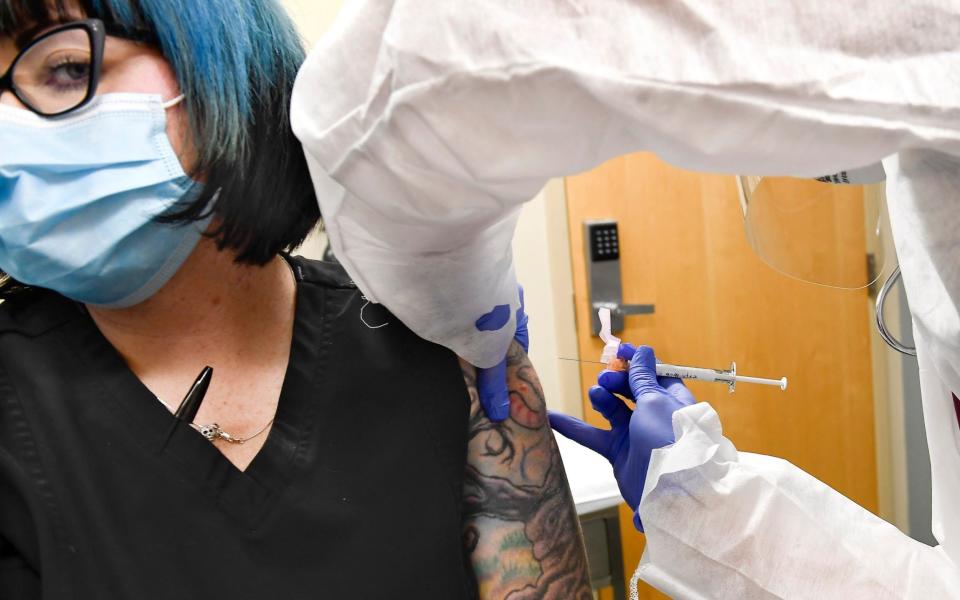Scientists fear Trump administration overlooking concerns to produce vaccine in time for election

Scientists in the US have expressed fears that the Trump administration is brushing aside safety concerns in a bid to deliver a Covid-19 vaccine in time for the November election.
Experts said they worried that a White House anxious for good news will push the Food and Drug Administration (FDA) to overlook insufficient data from trials of a vaccine.
Donald Trump announced in May the Operation Warp Speed initiative to develop and deliver 300 million doses of a safe, effective coronavirus vaccine by January 2021.
The date has since been brought forward.
Approving vaccines usually takes years as the threshold is typically higher than for other drugs because they will be used in millions of otherwise healthy people. This would mean that even rare side effects could affect many more people than a drug that treats a specific illness.

“There are a lot of people on the inside of this process who are very nervous about whether the administration is going to reach their hand into the Warp Speed bucket, pull out one or two or three vaccines, and say, ‘We’ve tested it on a few thousand people, it looks safe, and now we are going to roll it out,’” Dr Paul Offit of the University of Pennsylvania, who is a member of the Food and Drug Administration’s vaccine advisory committee, told the New York Times.
“They are really worried about that,” he added. “And they should be.”
In a tweet last month, the president explicitly tied vaccines to his re-election hopes.
“F.D.A. has been great, at my instruction. We expect to have a vaccine available very, very early before the end of the year, far ahead of schedule,” he said. “We’re very close to having that finalized.”
Dozens of Covid-19 vaccines are currently in development in the US. Massachusetts-based Moderna and National Institutes for Health last week began the third stage of testing with 30,000 participants. Earlier trials were encouraging, with the vaccine producing an antibody response in the majority of patients.
The Centers for Disease Control and Prevention (CDC) has drawn up guidance on who will be first to receive any vaccine. Some 12 million of the country's most critical health, national security and other essential workers will be first in line. Next will be 110 million people deemed to be at high risk from the novel virus.
White House officials said that the vaccine timeline had no connection to Mr Trump’s re-election campaign. “The rapid research, development, trials and eventual distribution of a Covid-19 vaccine is emblematic of President Trump’s highest priority: the health and safety of the American people,” said Judd Deere, a White House spokesman. “It has nothing to do with politics.”
It came as senior Democrats spoke out against a key member of the administration’s coronavirus taskforce.
Nancy Pelosi, House Speaker, criticised what she called Dr Deborah Birx’s overly "optimistic" briefings to the president on the virus.
Dr Birx, the taskforce’s response coordinator, replied: “This was not a pollyannish view. I've never been called pollyannish, or non-scientific, or non-data driven.
“I will stake my 40-year career on those fundamental principles of using data to implement better programs and save lives."

